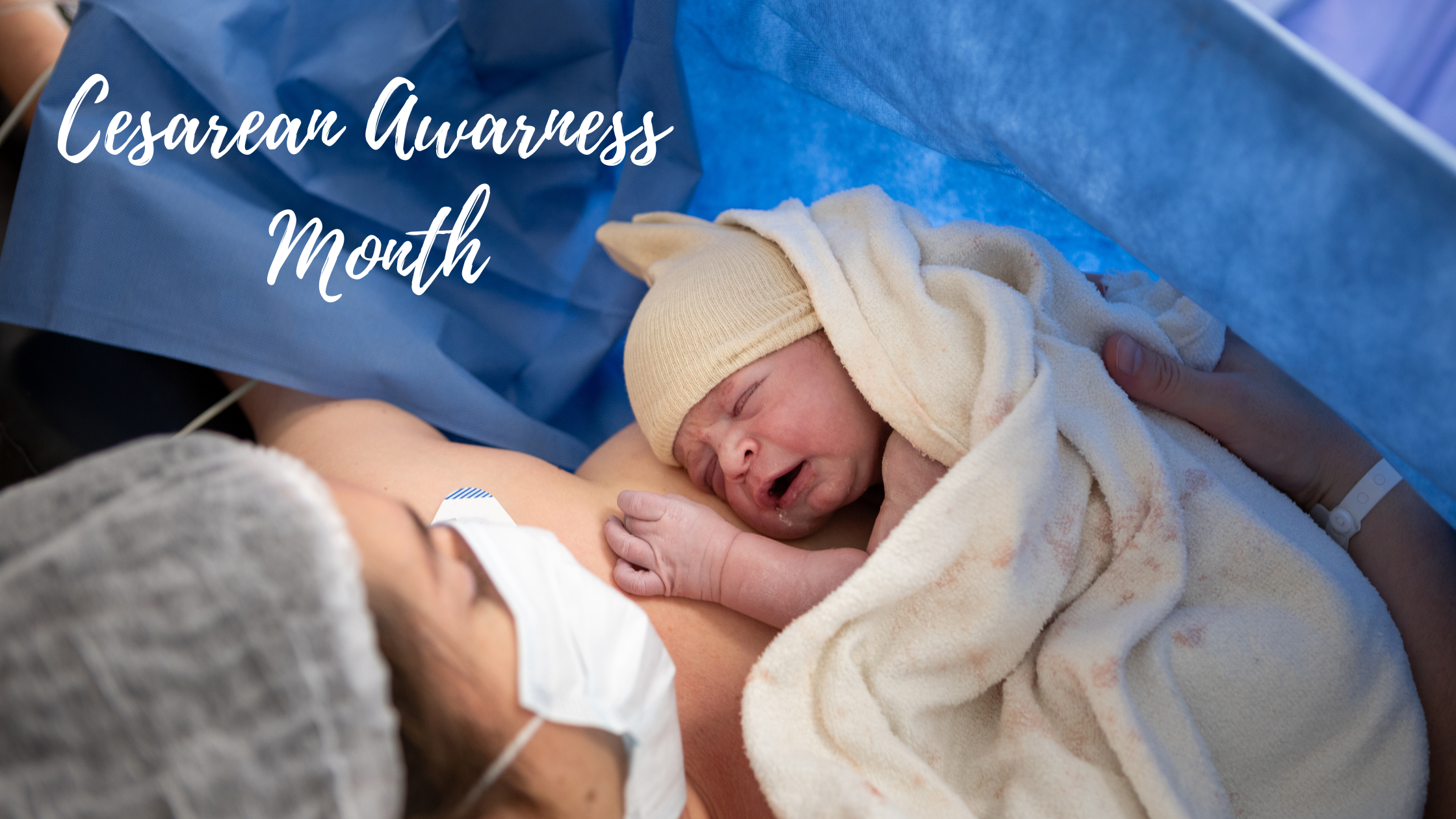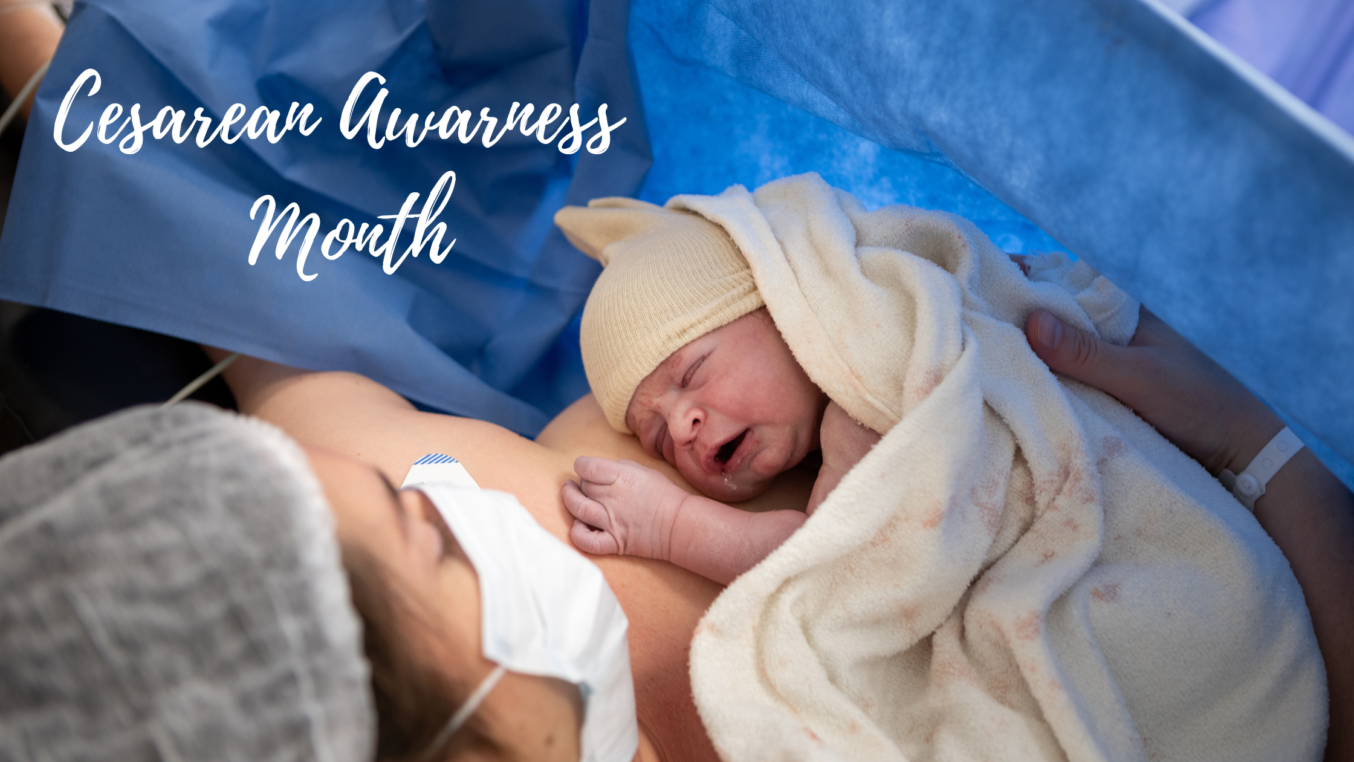
Shedding Light on Cesarean Awareness Month: Understanding, Preparation, and Support
In the realm of childbirth, Cesarean sections (C-sections) represent a significant aspect of modern obstetrics. Each April, Cesarean Awareness Month offers an opportunity to delve into the complexities, challenges, and crucial considerations surrounding this way of childbirth. From understanding why cesareans are performed to offering support and guidance for those undergoing or recovering from one, this month serves as a beacon for education, empowerment, and awareness.
Why Cesarean Awareness Month?
Cesarean Awareness Month exists to shed light on the prevalence, implications, and experiences associated with cesarean deliveries. According to the World Health Organization (WHO), the global rate of cesarean sections has steadily risen over the past few decades, prompting concerns about overuse and its potential impact on maternal and infant health. By fostering conversations, sharing information, and dispelling myths, this observance aims to promote informed decision-making, reduce unnecessary interventions, and improve outcomes for both mothers and babies.
Reasons for Cesarean Delivery:
There are various reasons why a Cesarean section might be recommended or necessary, including:
-
Fetal Distress: When the baby shows signs of distress during labor, such as an abnormal heart rate or inadequate oxygen supply.
-
Breech Presentation: When the baby is positioned feet or buttocks first instead of headfirst, increasing the risk of complications during vaginal delivery.
-
Placenta Previa: If the placenta partially or completely covers the cervix, obstructing the baby's passage through the birth canal.
-
Maternal Health Concerns: Certain medical conditions, such as high blood pressure, diabetes, or infections, may necessitate a Cesarean delivery to ensure the safety of both mother and child.
Helpful Advice Before, During, and After a Cesarean:
-
Preparation: Before the scheduled cesarean, discuss your concerns, preferences, and expectations with your healthcare provider. Attend childbirth education classes that cover cesarean, and make arrangements for post-operative care and support.
-
During the Procedure: Stay informed and ask questions. Your medical team will guide you through the process and address any concerns you may have. Focus on relaxation techniques, such as deep breathing or visualization, to ease anxiety and promote a sense of calm.
-
Recovery: Follow your healthcare provider's instructions for post-operative care, including wound care, pain management, and physical activity. Accept help from family and friends, and prioritize rest and self-care as you gradually recover from surgery. Consider the support of a professional postpartum doula.
-
Emotional Support: Recognize that feelings of disappointment, frustration, or anxiety are normal after a cesarean, especially if it deviates from your birth plan. Seek support from loved ones, online communities, or professional counselors who can offer empathy, encouragement, and practical advice.
Resources for Cesarean Awareness:
-
International Cesarean Awareness Network (ICAN): A nonprofit organization dedicated to promoting cesarean awareness, providing support, and advocating for evidence-based maternity care practices.
-
American Pregnancy Association: Offers comprehensive information, resources, and support for expectant parents, including articles, videos, and forums on Cesarean delivery.
-
Cesarean Birth: A book by Dr. Michel Odent and Liliana Lammers that explores the cultural, emotional, and physiological aspects of Cesarean birth, offering insights and guidance for expectant parents and healthcare professionals alike.
-
Online Forums and Support Groups: Websites such as BabyCenter, What to Expect, and Reddit's r/CsectionSupport provide platforms for sharing experiences, asking questions, and connecting with others who have undergone Cesarean deliveries.
Cesarean Awareness Month serves as a vital opportunity to educate, empower, and support individuals and families navigating the complexities of cesarean birth. By fostering open dialogue, providing resources, and promoting compassionate care, we can strive to ensure that every birthing experience is informed, respected, and safe for both mother and baby. Let's embrace this month as a catalyst for positive change and advocacy in maternity care.

